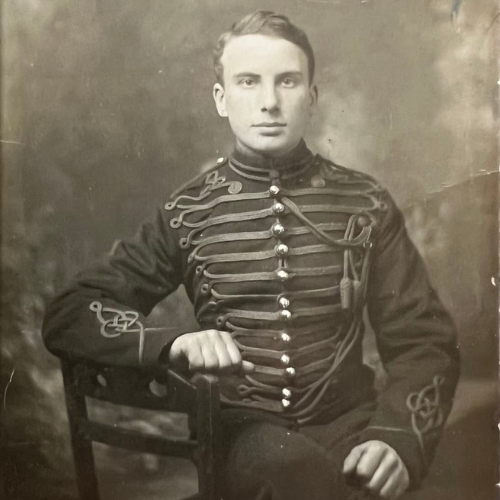
Born in West Ham, London, in 1890, Richard Wingrove Pattison served 11 years with the British Imperial Army as a Driver in the Royal Horse Artillery, number 53965. Posted to Sailkot, India, in 1909, his unit was transferred to Meerut in 1914.
In February 1915, his “S Battery” arrived in Basra to bolster the campaign in Mesopotamia. Pattison was one of thousands of British soldiers who contracted malaria during the fighting, an illness that plagued him for the rest of his life.
Officially discharged in March 1920, Richard immigrated to Canada. During the transatlantic crossing, he met his future wife, who was also leaving London to build a new life. They arrived in St. John, New Brunswick, and eventually settled in Toronto.
Richard was employed by C.N. Rail and performed manual labour in “The Shed” at Union Station, sorting shipments and parcels in all weather conditions. He fathered three children, a son and two daughters. He succumbed to the effects of cancer, malaria and the working conditions at C.N., dying at age 55 in 1945.
A full military honour guard served as pallbearers at the graveside ceremony at Toronto’s Prospect Cemetery, where he is buried in the military section. He served his country and fought for freedom for a total of 11 years, two months and 23 days.
For his service, Richard was presented with the British War Medal, the Victory Medal and the 1914-15 Star. He is a hero to his family and his spirit lives on at Canada Army Run.
